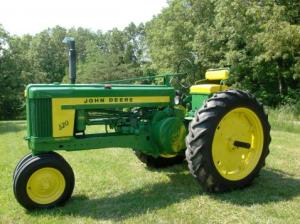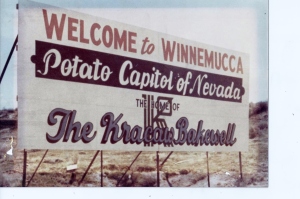I was a guest blogger in my brothers blogger this week. Just for fun I posted here as well.
I am excited to write a guest blog for my brother Doug who is in the middle of an online accounting firm start-up named AccountingFirst.com. Doug has always been a trendsetter. He was always trying new things while we were growing up, he had the first motorcycle in our family; he was the first to get into a wreck, and the first to go to Utah State University.
Doug also saw the online accounting trend ten years before it was “trendy”. When he first started talking about online accounting, “QuickBooks Online” was not even available. Doug has always been ahead of the curve, and just courageous enough to make things happen.
He taught me a great lesson, when he left a good accounting job to start an online accounting practice. His actions reminded me of a sign I read recently which stated, “Life is a journey, not a destination”. To build on this idea, we are all in different locations on our journey, some are nearing completion, others are just starting out and others are smack-dab in the middle. Along this journey regardless of our location, one thing is for sure, we will all encounter problems, some small ones, some big ones, and some really big ones. In order to overcome these problems we need to do at least two things. The first is to have access to good information, and the second is to have a good plan of action. This does not mean to gather the needed information half-heartily, or to put together a poorly thought out plan. I will address both of these ideas below:
- Gather information-This information has to be as accurate as possible, whether it is market statistics, product cost, current break-even costs or the most precise and accurate month end numbers. This information must be able to tell you if you or your business is starting to go down the wrong path. The sooner you know, the sooner you can make the needed adjustments.
The company I work for was recently acquired, and one of the changes from the new company was an accelerated accounting close schedule. The new company not only expected the monthly close numbers sooner, they expected increased accuracy. At first, I resisted this new close schedule, but I quickly learned the importance of the new schedule, and soon realized the Executives were adjusting their plans each month based upon the accounting close information. There is no doubt the accelerated accounting schedule was more difficult, but the information gathered and changes made to the plan are making the company more successful than ever before.
Another example, on the importance of gathering information, was this spring I was helping a friend sell some alfalfa hay. We knew the alfalfa market was softening, but we had no idea how soft the market would actually become. We had an opportunity to sell hay for $30 more per ton than it sold for five months later. If we had based the decision not to sell earlier in the spring on better information, it would have made a huge difference to the company’s cash flow and its bottom line. I wonder if I would have made three more phone calls to hay marketing experts, if we would have learned really how low the market would go.
The lesson we learned was to take the time to acquire the best information in order to make the best decisions. This takes time and is not easy. Nevertheless, it is possible. The other lesson learned was to “focus on the problem, not the person”. When this happens, take the time to learn what happened, find the root cause, and do not make the same mistake twice.
- Create a plan-This seems very basic, but every company should have a long-term and short-term plan. Each plan should consist of at least three items: goals, metrics to measure the goals and contingency plans for what may go wrong. Remember just because we cannot foresee every problem that is coming down the road, we should not stop trying. One proven method is to write down the problems we encounter, the cause of the problem, what we did to correct the problem and the results of our actions. In time, this process will begin to teach us what indicators we must watch to identify problems before they happen. We must be brutally honest when identifying possible problems. We should never bury our heads in the sand by saying, “That will never happen”, chances are it can and it will. The Boy Scout motto of “Be Prepared” is very fitting for the planning phase.
In conclusion, be patient, work hard, be creative, be realistic and never give up on your plan. Gather the needed information and compare it often to the metrics identified in your plan. Do not let the wheels fall off, before you start adjusting your plan.
If you ever need assistance with either of these two items, give Doug a call.
For what it is worth, I have one last thought “The only limiting factor to how far we can go is our own imagination”. Everyone has far more abilities than they think they have. I wish we could all remember this old adage “Treat a man (business/company/ or whatever) as he is and that is what he will be, treat a man (business/company or whatever) as he should be, and that is what he will become.
On the next blog, I will dig deeper into the basics of “The Plan”.























